TechRadar Verdict
The Sony LinkBuds are the weirdest true wireless earbuds we’ve ever seen, but the company has taken a well-calculated risk in creating a pair of in-ear headphones that can be worn all day long. A spacious soundstage should keep audiophiles happy, while ingenious controls and an excellent companion app will appeal to techies - bass heads should look elsewhere, though.
Pros
- +
Spacious sound
- +
Clever controls
- +
Tiny design
Cons
- -
Bass could be stronger
- -
No wireless charging
- -
No multipoint pairing
Why you can trust TechRadar
One-minute review
The Sony LinkBuds are the strangest true wireless earbuds we’ve seen. They’re the world’s first open-ring in-ear headphones, a design that leaves your ear canals totally free to hear your environment while you enjoy music, listen to podcasts, or take phone calls.
They’re also the company’s smallest earbuds to date and are much daintier than the Sony WF-1000XM4. They are so small in fact, that Sony has employed ingenious controls that mean you don’t have to fumble with the miniature housings to adjust music playback - instead, you can tap your face to skip tracks, change the volume, and take calls. Now that is cool.
Sony has taken a big risk by eschewing the two main true wireless earbud designs: AirPods-style buds with protruding stems and rounded housings that you shove in your ear.
We’re pleased to report that the gamble has paid off. Sony has succeeded in creating a pair of wireless earbuds that really can be worn all day, whether you’re working in a shared office, or pottering around the house and don’t want the worry that your music will make you miss a knock at the door.
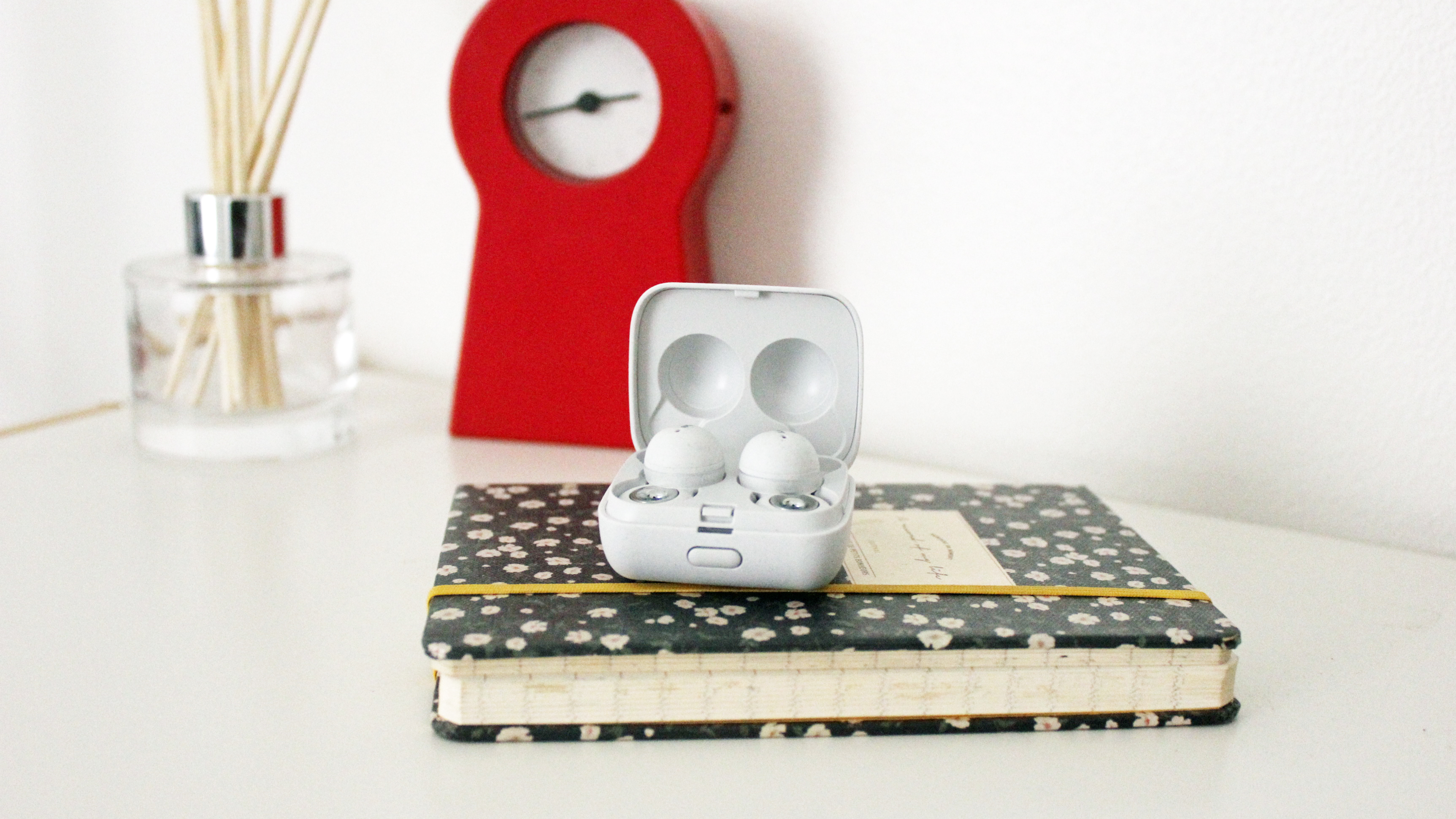
The audio quality is exceptional, with a remarkably wide soundstage that gives every instrument in your favorite songs the room they need to shine. Detail, clarity, and rhythmic accuracy are also excellent.
The open fit does come with some drawbacks, though; the bass response isn’t particularly powerful, and being able to hear your environment means the detail you get from the LinkBuds can be obscured by whatever’s going on in the background.
Still, those are the things you sacrifice for a pair of earbuds that are truly unlike any other models on the market today. If you want chest-thumping bass and the sensation of pure isolation when you listen to music, look for a pair of noise-cancelling earbuds instead. But, if you’re on the hunt for something a little different, the Sony LinkBuds are worth taking a chance on.
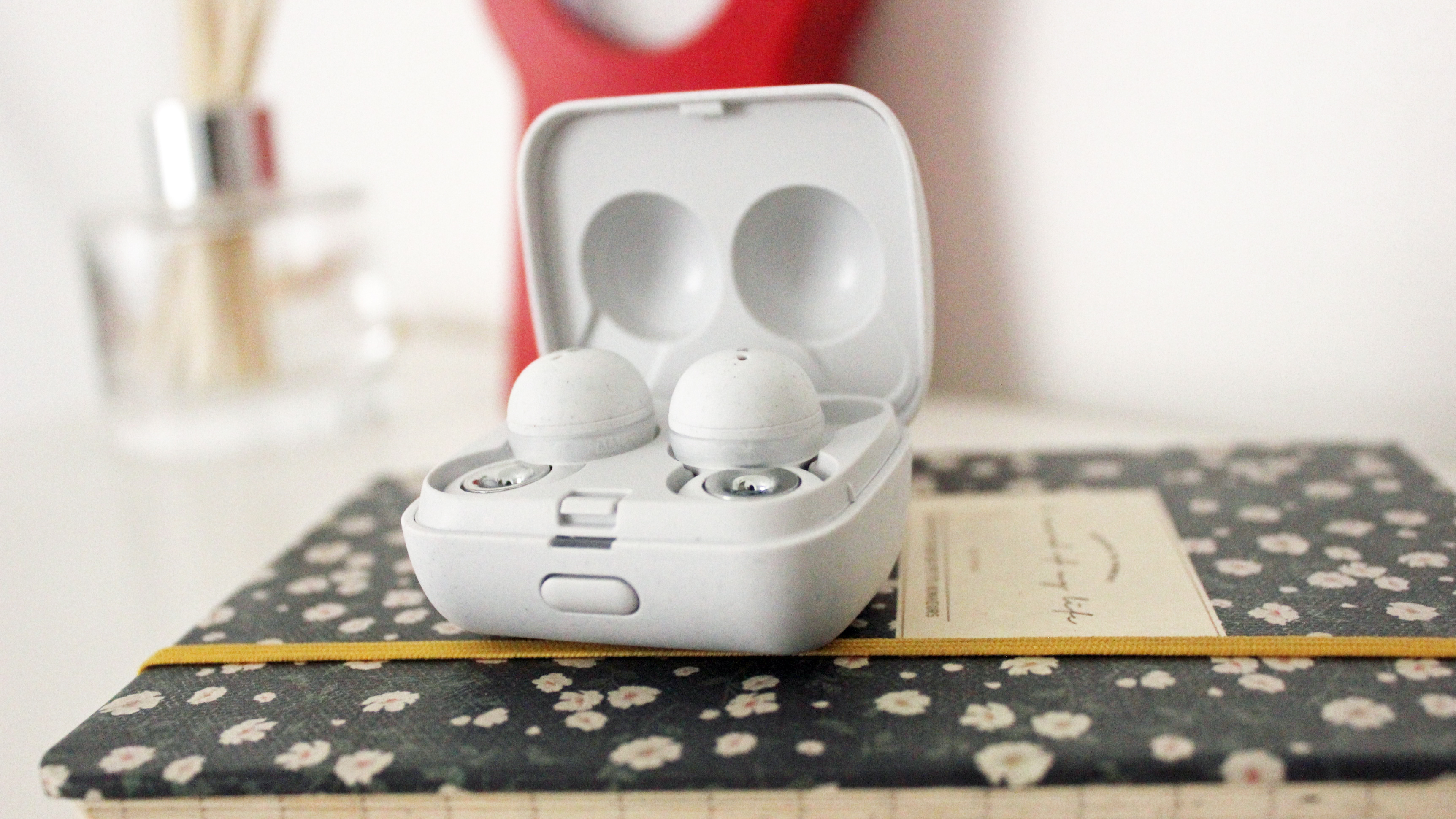
Sony LinkBuds price and release date
- Available now
- $179 / £149 / AU$299
The Sony LinkBuds were released on February 15, 2022, and are available to buy for $179 / £149 / AU$299.
That’s a lot cheaper than the brand’s flagship true wireless earbuds, the Sony WF-1000XM4, which cost $279.99 / £250 / AU$449.95, and a similar price to the Apple AirPods 3.
That price seems about right for a pair of Sony earbuds that don’t come with active noise cancellation, though you could argue that the number of extra quality-of-life features you get from the LinkBuds makes them a bit of a bargain.

Design
- Open design
- Small and light
- Black and gray color options
We’ve never seen a pair of true wireless earbuds that look like the Sony LinkBuds, which are the first to feature a fully open design that leaves your ear canals exposed.
Each earbud comprises a ring-shaped driver connected to a rounded housing; the ring part surrounds your ear canal, while the housings sit just above in the conch of your ear, held in place by a rubber fin. Sony includes a range of differently-sized fins in the box - this is important, as the LinkBuds won’t stay in place unless the fins hook under the cartilage that folds in the middle of your ear. If you’re confused about how to wear the LinkBuds, Sony includes a helpful video in the Headphones Connect app to get you started.
Coming in black and gray, the Sony LinkBuds are the company’s smallest true wireless earbuds; they’re 51% smaller in volume than the Sony WF-1000XM4 and weigh just 4.1g. The case is also tiny - about the size of a ring box - and is 44% lighter than the case you get with the WF-1000XM4.
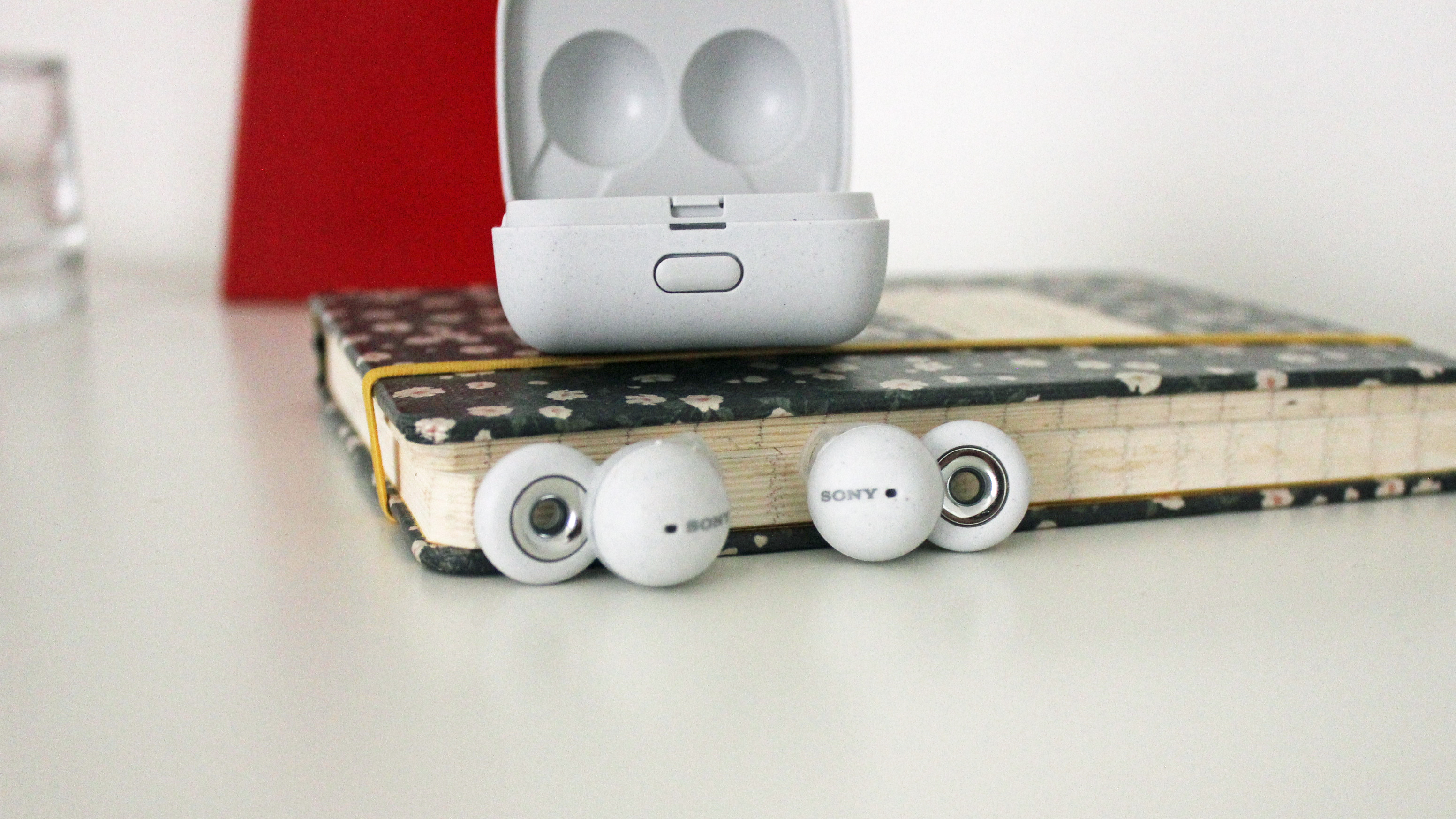
On the front of the charging case is a little button; press this and the lid flips open to reveal the earbuds and an LED light that lets you know how much battery life is left. Around the back of the case are a pairing button and a USB-C charging port. The charging case is made from recycled plastic derived from car parts; that, combined with the LinkBuds’ plastic-free paper packaging gives Sony’s earbuds some eco credentials.
The earbuds come with an IPX4 water-resistance rating, so you can use them while working out without having to worry about a little sweat or a few drops of rain. They are also secure enough to wear while running - you’d have to shake your head really hard to dislodge the LinkBuds.
In spite of their small size, we were disappointed to find the Sony LinkBuds uncomfortable to wear. That’s not something we’re going to hold against Sony; we’ve never got on with earbuds that sit in the conch of our ears, and that’s just due to our anatomy. So be aware that if your ears are smaller in size, you might find the LinkBuds unsuitable for long listening sessions.

Controls and setup
- Wide Area Tap feature
- Customizable controls
- Setup via the Headphones Connect app
The controls for the Sony LinkBuds are rather ingenious. Like many other true wireless earbuds, you can tap the housings to control your music playback, but as the LinkBuds are so small, it can be tricky to tap them accurately enough to get the response you want.
To get around this, Sony has implemented a feature called Wide Area Tap, which allows you to double- or triple-tap the area in front of your ears to control the earbuds. That’s right - you need only tap your face to pause/play your music or skip to the next track.
These controls worked remarkably well, though you do need to tap quite firmly for the earbuds to register your movements - we found the best spot to tap was the tragus (that’s the little flap of cartilage that sits in front of your ear canal).
You can change the controls to your liking in the Sony Headphones Connect app; for instance, you could assign a double-tap to the left earbud to lower the volume.
Like the Sony WF-1000XM4, the new LinkBuds come with the company’s Speak-to-Chat feature, which automatically pauses your music if you start talking - and if the earbuds don’t detect your voice for 15 seconds they’ll assume your conversation is over, and your music will resume.
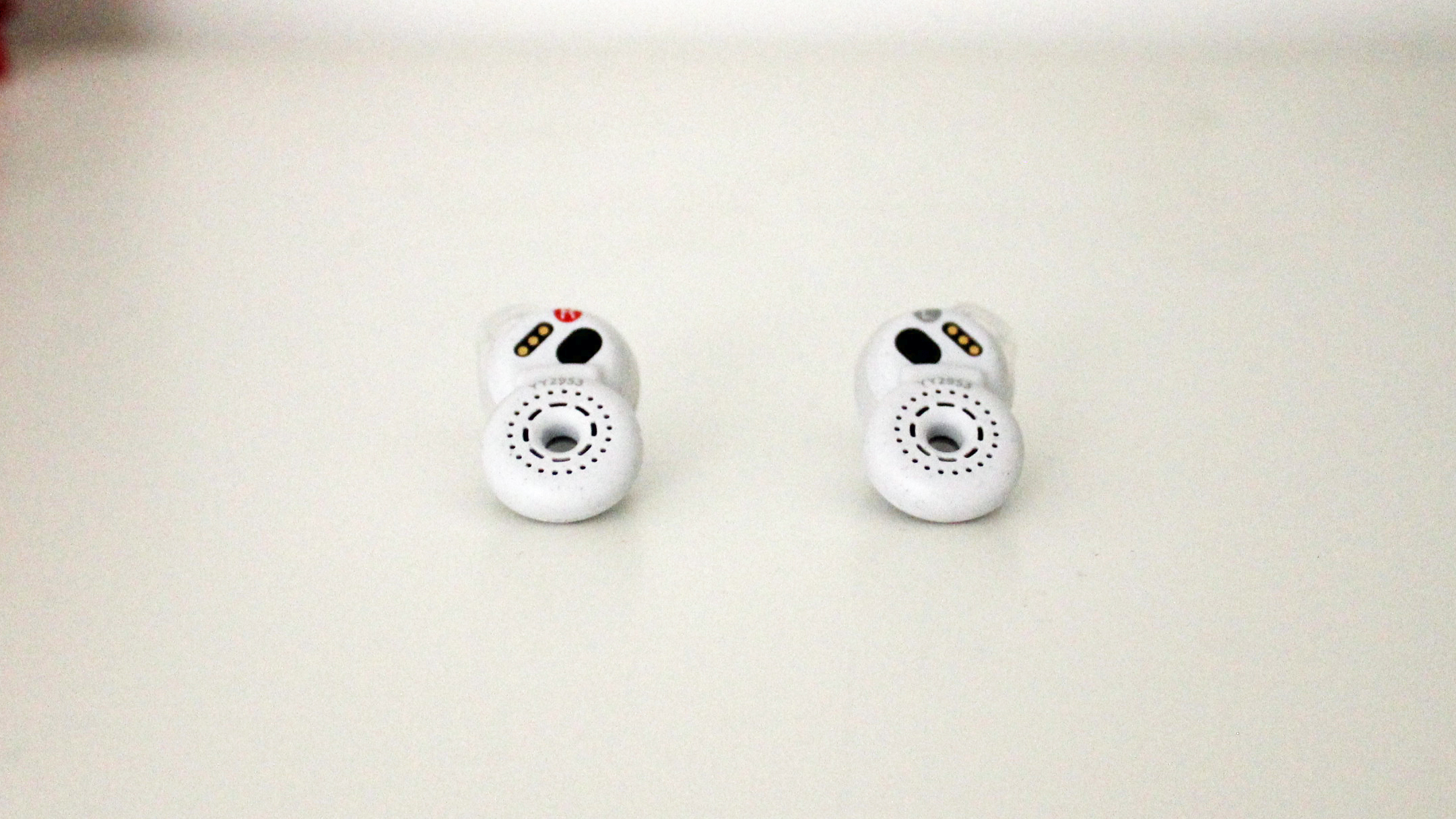
To set up the LinkBuds you download the Headphones Connect app and follow the on-screen prompts. To enable Sony’s 360 Reality Audio feature, you take a picture of each ear and the app will then analyze their shape for an immersive sound that’s tailored to you.
You’ll need to use a compatible music streaming app to experience 360 Reality Audio, such as Tidal, Deezer, Amazon Music HD, and nugs.net.
The Connect app also lets you see how much battery life your earbuds and charging case have left, toggle between equalizer presets (or adjust the frequency sliders yourself if you prefer), turn on Spotify Quick Access for speedy Spotify playback, and turn on Adaptive Volume Control, which makes the volume of your music louder if the earbuds detect that you’re in a noisy environment. You can also turn DSEE audio upscaling and Speak-to-Chat on and off, choose whether you want your music to be paused automatically when you remove the earbuds, and check for software updates.
We found the app comprehensive and easy to use, and we liked the fact you can customize which features you want to use - especially as Sony warns that using lots of the extra features at once can deplete the battery life of the LinkBuds.

Audio performance
- Wide soundstage
- Bass could be stronger
- Support for 360 Reality Audio
The open ring design of the Sony LinkBuds means they offer a remarkably spacious and wide soundstage, which you wouldn’t normally get from a pair of in-ear headphones.
They also offer plenty of detail, excellent rhythmic accuracy, and a well-balanced soundstage that allows every instrument in your favorite songs to come through with clarity. The 12mm drivers are fairly powerful, while Sony’s Integrated Processor V1 ensures your music sounds authentic with minimal distortion.
There are a few downsides to the open drivers, though. For one thing, they let in a lot of environmental sound - which is exactly what these earbuds are designed to do - and that means all the detail you’re getting from your music can be muddied by the chatter of people talking nearby, the rumble of cars driving by, and other ambient sounds.
The fact the earbuds don’t create a seal against your ear canal also means the bass response isn’t particularly strong - and as such, you don’t get that highly emotive, chest-thumping experience from tracks that have a powerful low end.
Those are the tradeoffs you’re making for a pair of earbuds that can be worn all day long and used for any situation - whether that’s taking calls, listening to podcasts, working out, or casually listening to music while working. The sound leakage you’d expect to irritate anyone in your immediate vicinity isn’t nearly as bad as we thought it would be, either.
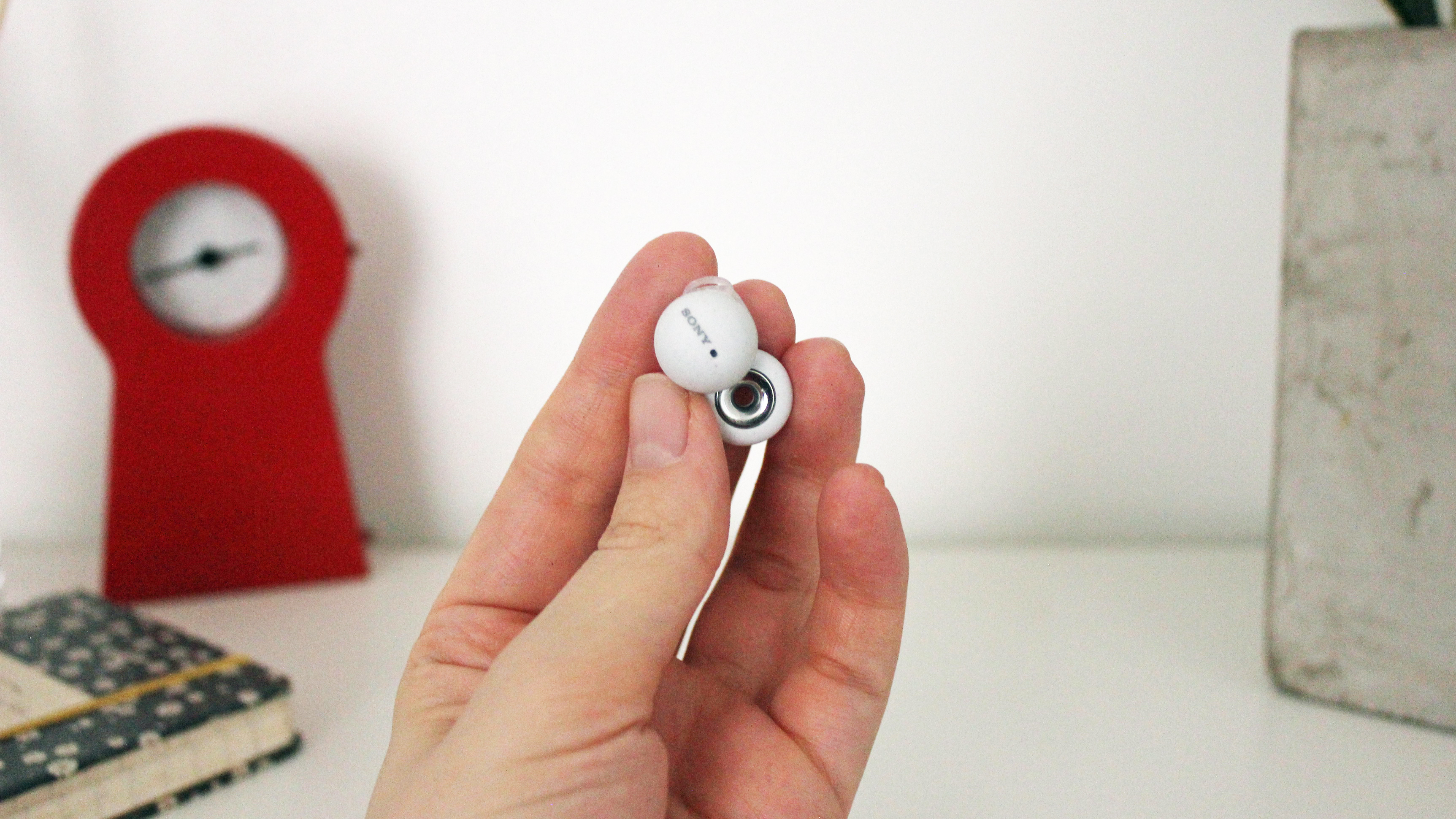
As we listened to The Beatles’ This Boy, the dissonant harmonies sounded as lovely as we’d hoped, with the impeccably balanced soundstage allowing each vocal line the space they need to bloom. The chugging Motown rhythm section is permeated by lazy guitar slides that the LinkBuds convey with a pleasing brightness.
In Black Country, New Road’s The Place Where He Inserted the Blade, the gentle piano introduction melts into strummed guitar and wavering flute, with each instrument given plenty of space.
The vulnerable vocals sound clear and detailed as the instruments descend into the chorus, each playing to their own rhythm. As the different rhythms become more complex and more instruments and voices enter the mix, the LinkBuds have the accuracy to ensure they sound distinct, without sounding disharmonious.
To put the rhythmic accuracy of the LinkBuds to the test, we stuck on BADBADNOTGOOD’s Speaking Gently. Jazzy vaporwave synths punctuated by complicated drum polyrhythms and fills are handled expertly by the LinkBuds, with an excellent sense of timing and sonic space.
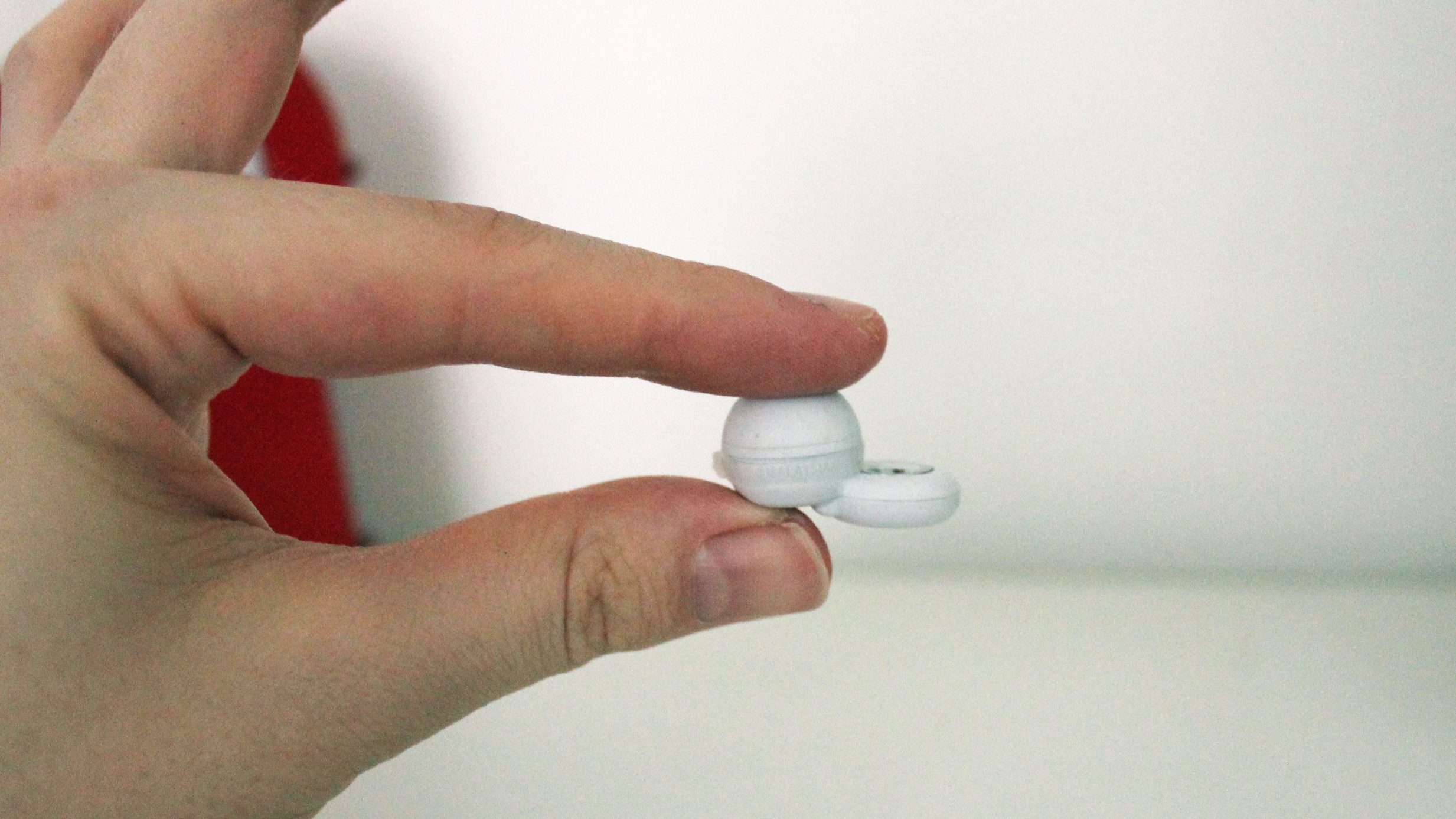
The bass is okay, but it could be a lot richer and deeper. That’s to be expected from a pair of earbuds with this open design, as earbuds that close off the ear canal completely elicit a more powerful bass response. If you’re listening to hip hop, electronica, or anything with a big bassline, you may be disappointed by the sound of the LinkBuds.
Even so, the excellent balance offered by the LinkBuds means that the trebles and mids don’t sound overpowering in comparison to the bass.
Like the Sony WF-1000XM4 and the Sony WH-1000XM4, the LinkBuds come with the brand’s DSEE feature, which upscales lossy files to near high-resolution sound. We’re not sure how successful this feature is, but we don’t have any complaints about the audio quality of the tracks we listened to, whether we were using Spotify or higher quality lossless tracks on Apple Music.
There’s also support for Sony 360 Reality Audio, which means you can experience immersive sound that places elements of your music in a virtual sphere - in other words, it sounds as though the music is coming at you from every direction.
This feature worked remarkably well for such a small pair of earbuds, and that might be down to the spacious soundstage offered by their open design. You really get a sense of sonic direction from your music. However, you will need access to one of the few compatible streaming services that support this feature to take advantage.
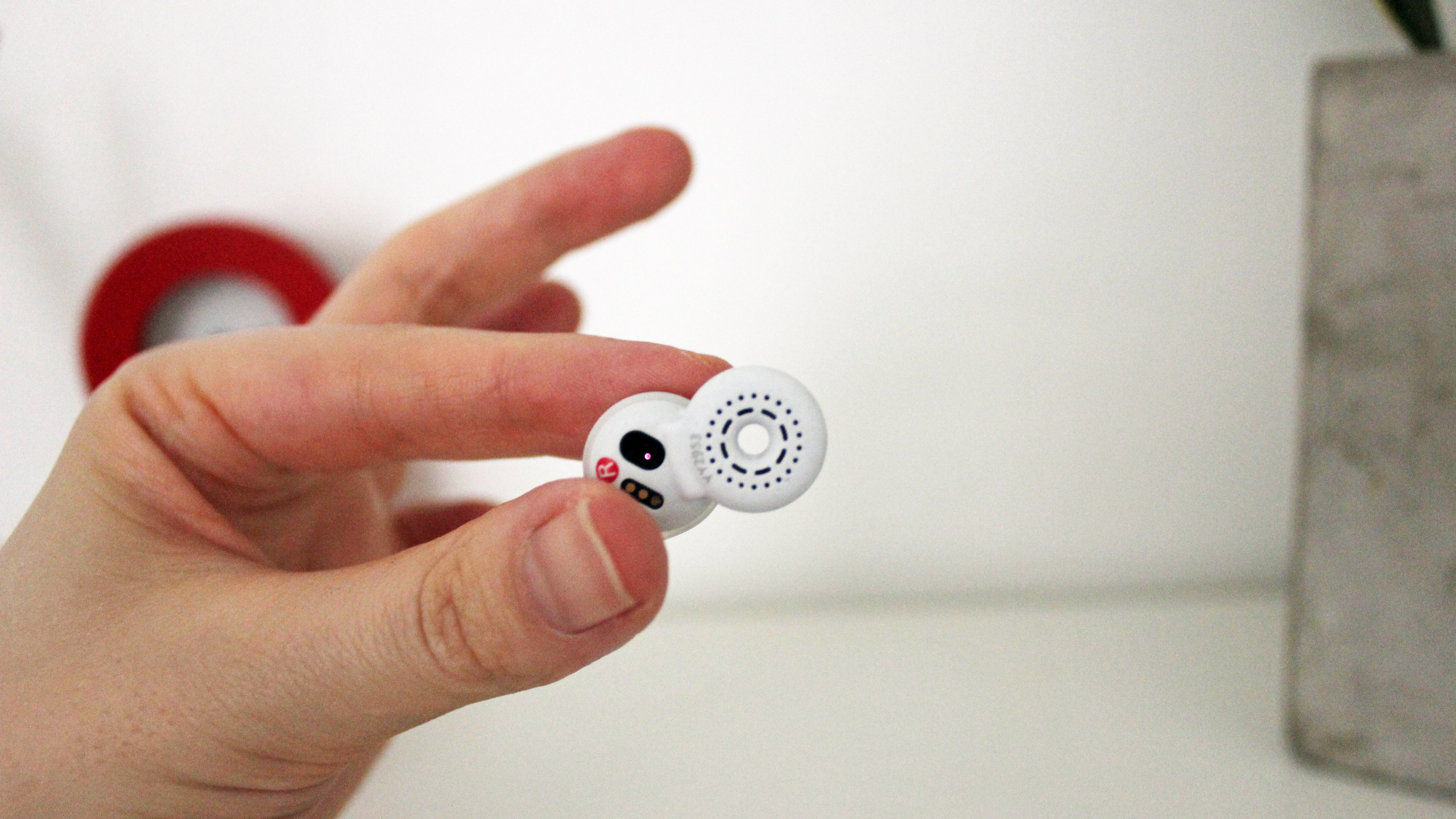
Battery life and connectivity
- 17.5-hour battery life
- Bluetooth 5.2
- No wireless charging
The battery life of the Sony LinkBuds comes in at 17.5 hours - that’s 5.5 hours from the earbuds and a further 12 hours from the charging case. A quick 10-minute charge will give you 1.5 hours of playback.
That battery life is a bit disappointing; the Sony WF-1000XM4 offer 24 hours in total, and most true wireless earbuds without active noise cancellation give you 25 hours or more.
You can put that down to the size of the LinkBuds - there just isn’t room inside the housings for a huge battery. And, as Sony warns in the Connect app, having features like Speak-to-Chat, DSEE, and Adaptive Volume Control all turned on at once will deplete the battery even quicker. You’ll need to plug in a charger to the USB-C port on the LinkBuds’ charging case, which is a shame if you’ve invested in a wireless charging pad.
Connectivity comes courtesy of Bluetooth 5.2. Android users can take advantage of Fast Pair for rapid connections with their devices, and the same goes for Windows users and Swift Pair.
It’s easy enough to pair them with an iOS device too - you just need to hold down the pairing button on the back of the LinkBuds’ charging case, open your Bluetooth settings, and select the LinkBuds from there. It’s a shame there’s no multipoint pairing to allow rapid switching between your devices, but that’s not a dealbreaker.
We found the connectivity to be mostly good - although, if we left our device in one room and moved to another, we found the connection dropped out. That’s not unusual as physical obstacles like walls can get in the way of a Bluetooth connection, but the range did seem to be shorter than other earbuds we’ve tested.
Should I buy the Sony LinkBuds?
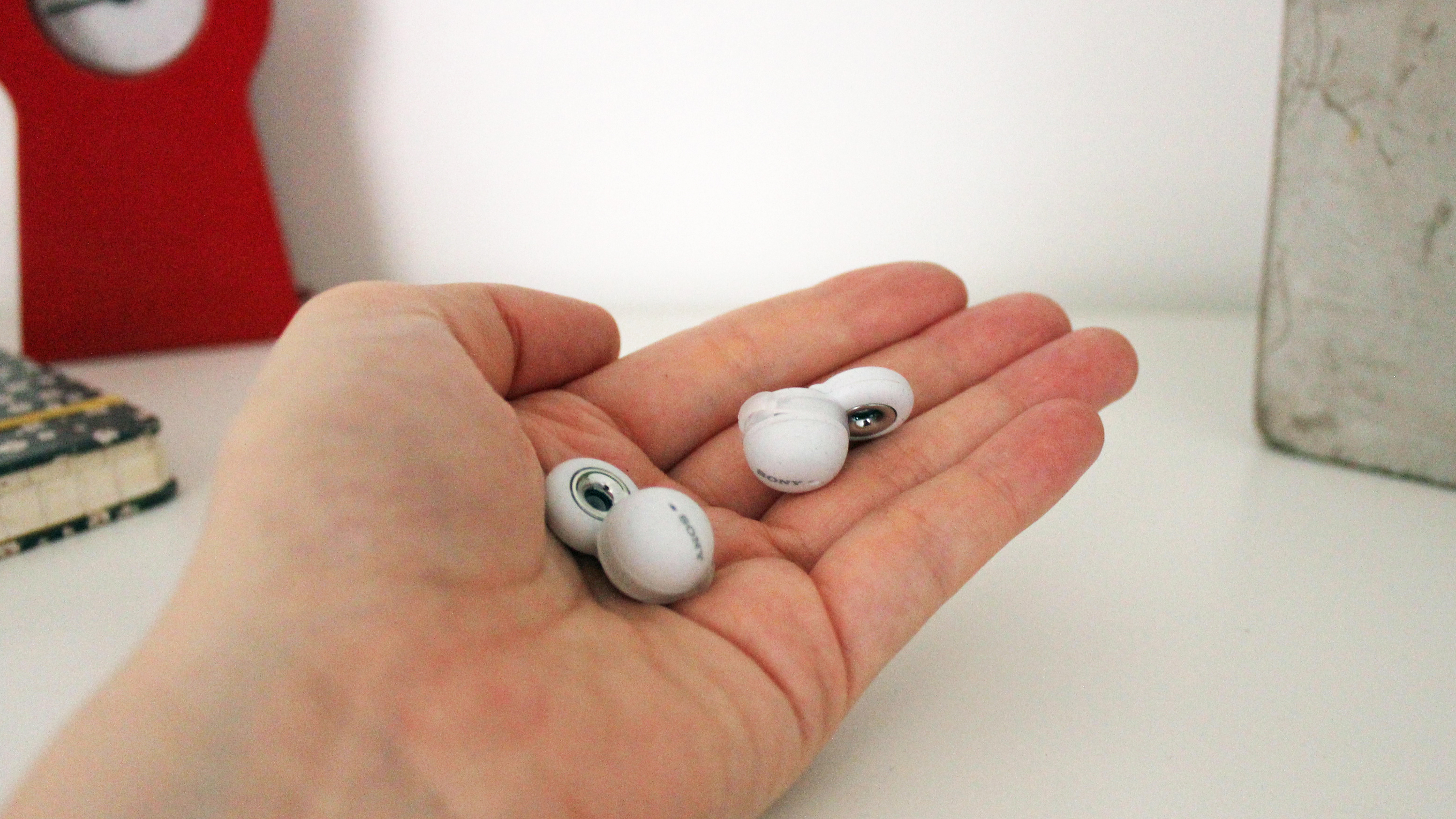
Buy them if...
You want a pair of earbuds you can wear all day
With the ability to hear your environment, adaptive volume control, and Speak-to-Chat, there’s no need to take the LinkBuds out.
You love a spacious soundstage
The open design of the LinkBuds means they boast a remarkably wide soundstage, which gives all the instruments in your favorite songs the space to shine.
Size matters to you
These are among the smallest and lightest true wireless earbuds we’ve tested, and they come with a tiny charging case to match.
Don't buy them if...
You’re a bass head
The LinkBuds are very well balanced, but the bass response will disappoint if you love a strong low end.
You want active noise cancellation
The LinkBuds let you hear everything that’s going on around you - for better or worse.
You want a long battery life
A 17.5-hour battery life is disappointing if you always forget to charge your earbuds.
- Read our guide to the best Sony headphones you can buy today
Olivia was previously TechRadar's Senior Editor - Home Entertainment, covering everything from headphones to TVs. Based in London, she's a popular music graduate who worked in the music industry before finding her calling in journalism. She's previously been interviewed on BBC Radio 5 Live on the subject of multi-room audio, chaired panel discussions on diversity in music festival lineups, and her bylines include T3, Stereoboard, What to Watch, Top Ten Reviews, Creative Bloq, and Croco Magazine. Olivia now has a career in PR.

